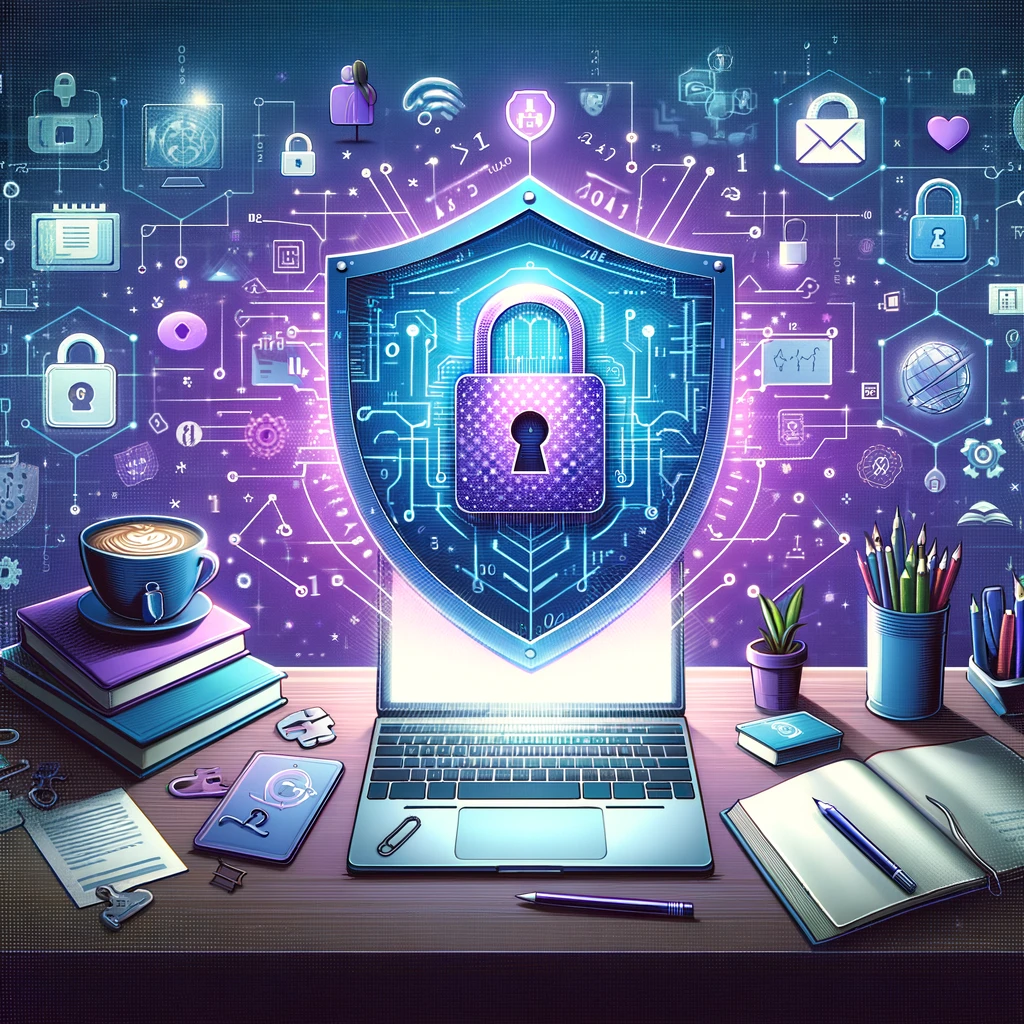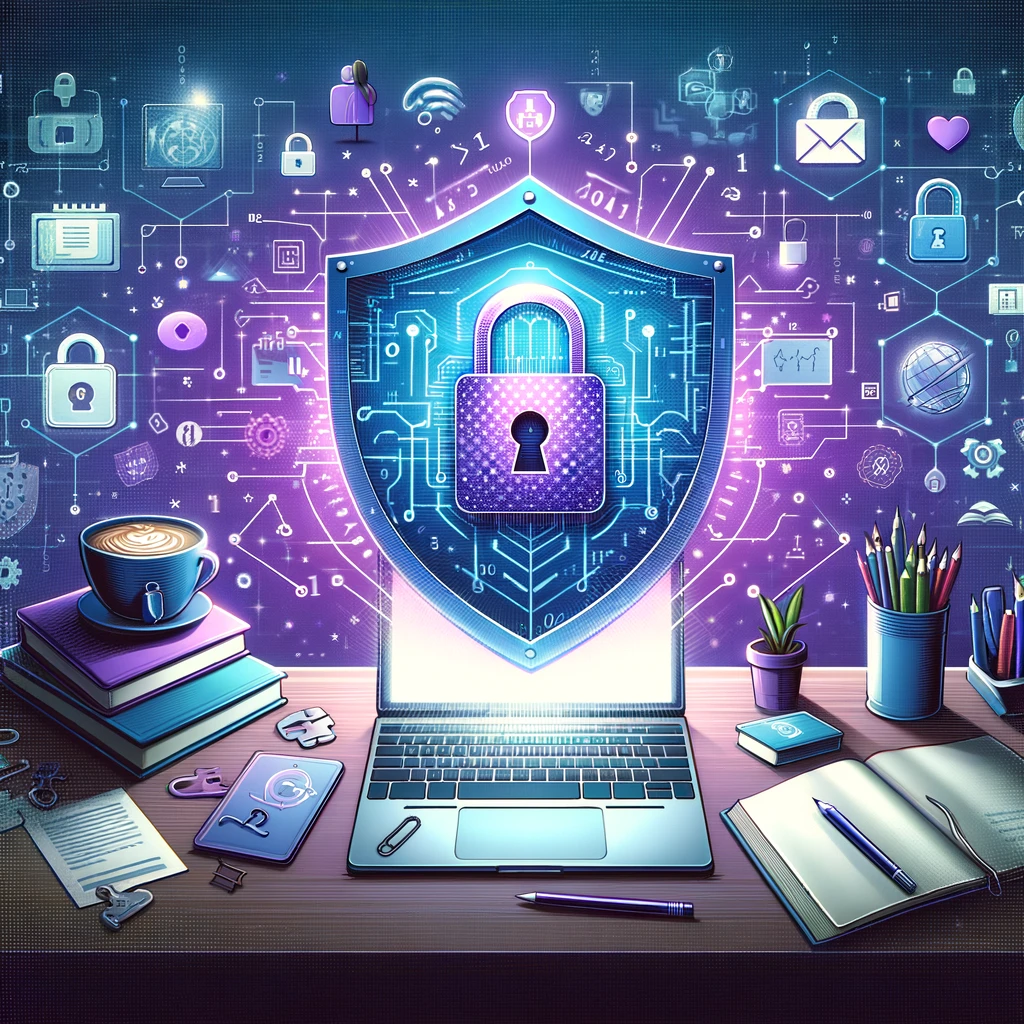Cybersecurity Guidance for the Digital Student: How to Stay Safe Online in 2024
Students are more connected than ever in the ever-evolving digital world of 2024. With this increased connectivity comes a greater risk of cyber threats. Cybersecurity is paramount, whether for attending online classes, submitting assignments, or socializing. Here are seven essential tips every student should remember to navigate the cyber world safely and smartly.
1. Create Strong, Unique Passwords
One of the fundamental steps in protecting your digital identity is creating strong, unique passwords for each account. A strong password is like a complex lock that’s much harder for cybercriminals to pick. It should be an extended mix of letters, numbers, and symbols and not contain easily guessable information like your name or birthdate. Avoid using the same password across different sites. If remembering all your passwords feels like memorizing an entire library of books, consider using a reputable password manager.
These tools store your passwords securely and often come with features that generate strong passwords for you. When you order even the best custom essay at Academized, ensure your computer is protected and learn about the site before purchasing.
2. Be Wary of Phishing Scams
Phishing scams have evolved and are now more sophisticated than ever. These scams, often disguised as legitimate emails or messages, aim to trick you into giving away personal information, such as passwords or bank details. Be extremely cautious with emails or messages asking for sensitive information, even if they seem to come from a known entity. Look out for signs like poor spelling or grammar, requests for urgent action, or sender addresses that don’t match the organization’s official domain. Remember, if an offer seems too good to be true, it probably is. When in doubt, contact the organization directly through official channels.

3. Regularly Update Your Software
Software updates are not just about getting the latest features; they’re crucial for patching security vulnerabilities. Cybercriminals exploit these vulnerabilities to gain unauthorized access to systems and data. Whether it’s your operating system, applications, or antivirus software, ensure they’re set to update automatically or regularly check for updates. Staying updated minimizes the risks of cyber-attacks and keeps your digital environment secure.
4. Use a VPN on Public Wi-Fi
Public Wi-Fi networks, while convenient, are notoriously insecure, making them hotspots for cybercriminals looking to intercept data. A Virtual Private Network (VPN) can shield your online activities from prying eyes by encrypting your internet connection. This encryption makes your online actions virtually invisible, even on unsecured networks. Whether checking emails at a café or researching in the library, a VPN adds an essential layer of protection.
5. Be Mindful of What You Share Online
In the age of social media, sharing personal moments has become second nature. However, the more information you share, the more you expose yourself to risks. Cybercriminals can piece together shared information to commit identity theft or craft personalized phishing attacks. Be mindful of what you’re sharing, especially on public profiles. Think twice before posting anything that could reveal too much about your personal life, such as your address, phone number, or vacation plans.
6. Secure Your Devices
Securing your devices goes beyond just having a password to unlock them. It involves taking measures like enabling two-factor authentication (2FA) for an extra layer of security, installing reputable antivirus software, and encrypting your hard drive. Encryption is essential as it ensures that if your device is lost or stolen, its data remains protected. Also, use the ‘find my device’ feature available on most smartphones and laptops to locate, lock, or erase your device remotely if needed.
7. Educate Yourself About Cybersecurity
Lastly, the most powerful tool at your disposal is knowledge. Stay informed about the latest cybersecurity threats and best practices. Many educational institutions offer resources and training on cybersecurity awareness. Take advantage of these resources to understand the digital risks and learn how to protect yourself. The more you know, the better you can navigate the complexities of the digital world safely.
Final Takeaways
Navigating the digital world safely requires vigilance, knowledge, and the right set of tools. By following these seven cybersecurity tips, students can protect themselves against the growing number of cyber threats and ensure their digital experience in 2024 is both safe and rewarding. Remember, in the vast ocean of the internet, it’s better to be a savvy navigator than to drift unaware into dangerous waters.








